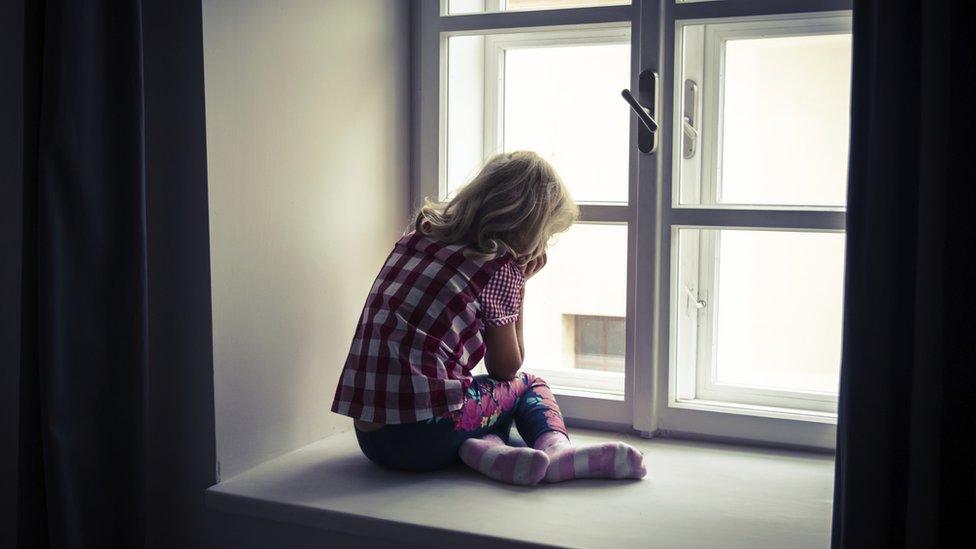Funds crisis pushes more children into care - report
- Published

More children are being taken into care, some unnecessarily, because councils in England cannot afford to intervene earlier, a report suggests.
Late interventions often meant problems had escalated before support could be put in place, the All-Party Parliamentary Group for Children heard.
Its report into children's social care found 90% of councils were struggling to fulfil legal duties to children.
The government said offering early help was the best way to keep children safe.
'Worse outcomes'
The report, No Good Options, said the challenge faced by children's social care teams had always been tough but had recently taken on a whole new dimension.
"Local authorities are too often failing to reach children and families who need help whether through early intervention services, statutory support for 'children in need' or statutory support for children care," it said.
The inquiry repeatedly heard more resources were being directed towards children who had already suffered abuse or neglect or those at a high risk of harm.
Meanwhile, fewer resources were being allocated for early intervention and prevention, including support for families.
The report said: "The result is a shift towards late intervention, where needs have often escalated significantly before any support is put in place.
"This often results in more children being taken into care, and ultimately in poorer outcomes for children and families."
'Not keeping pace'
There was evidence this shift in focus was "leading to an unmet need and a rise in costly late intervention", it added.
Between 2010-11 and 2015-16, the number of children subject to a child protection plan grew by 29% while spending on children's social care rose by just over 2%.
At the same time, the number of children taken into care rose 17.4%
Funding to local authorities had dropped 20% over the same period, the report said.
MPs said there was "clear evidence that funding for children's social care services is not keeping pace with demand".
And they called on the Department for Education and the Department for Communities and Local Government to review how social care was resourced.
Tim Loughton, the Conservative MP who chairs the committee, said the government "must act to address the funding crisis engulfing children's social care, and in particular the lack of resource for preventative and early intervention services".
A spokesman for the Department for Education said children should receive high quality care and support no matter where they live.
He added: ''We have been taking tough action where councils are failing children, stepping in when they aren't doing well enough and linking them with better performing local authorities and sector experts.''
He also highlighted an £800m in bursaries for people training to be social workers.
'Rising demand'
The Local Government Association said councils had been warning government "for some time" that the pressures facing children's services were becoming unsustainable.
Cllr Richard Watts, chair of the LGA's Children and Young People Board, said: "The number of inquiries into child protection concerns undertaken by councils has increased by 124% over the past decade, and the number of children needing child protection plans has increased from 26,400 to more than 50,000 over the same period - an increase of more than 23,000 children needing social work support to stay safe from significant harm.
"Councils have worked hard to protect funding for child protection services in response to this rapidly rising demand, but ongoing cuts to local authority budgets are forcing many areas to make extremely difficult decisions about how to allocate increasingly scarce resources.
"Councils have responded by reducing costs and remodelling services, but we must be clear that there are very few savings left to find without having a real and lasting impact upon crucial services that many people across the country have come to rely on."
- Published13 July 2016

- Published12 October 2016

- Published10 January 2017
